Why the “World” Series?
Before I start on this entry, I would just like to say thanks. Thank you all so much for coming over to my little corner of the internet and checking out what I have to say. When I first started this blog, I really did not expect anything to come of it. I didn’t expect to connect with a huge community of baseball nuts, and I especially didn’t expect this much feedback. I know I’ve been a very spotty blogger; there seems to be huge gaps between each entry. Junior year is slowly killing my soul, and for some reason I’ve decided to take naps everyday. I guess I just need to work on my time management. The point is: THANK YOU from the bottom of my heart for reading. You all know where I want to go in my life, and I hope I can keep this blog forever, and I hope that one day, “future” will be removed from its title.
Ban Johnson and Albert Goodwill Spalding signed what some consider to be a
“peace treaty” in 1903, they established the notion of two “separate but equal
leagues”. This alliance inspired the first “World Series” between the Boston
Pilgrims of the American League, and the
Pittsburgh Pirates of the National League at Boston’s Huntington Avenue
Grounds. So much has happened since then. The Red Sox were the dynasty of the first quarter of the century, winning five titles between 1903-1918, not to mention the fact that they moved to Fenway Park in 1912. The Pirates haven’t won a World Series since 1971, but they have had their place in history as well.
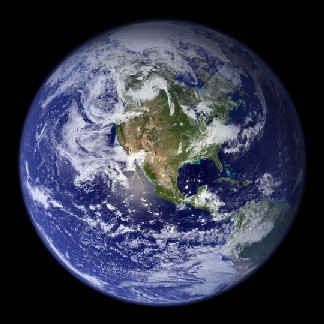
As
a baseball fan, it has always perplexed me as to why it was named the “World
Series” when it was merely a series between to American teams only 650 miles
from each other. Not to mention the fact that both teams were comprised of
white, American men. This series may have featured two of baseball’s best
players facing off against each other (Boston’s Cy Young and Pittsburgh’s Honus
Wagner), but there was really no reason for the series to be classified as a
World Series. However, this name has endured for more than one hundred years, so there has to be come justifications. I think there are two main aspects to
consider: the internal diversities that are intrinsic in baseball today, and
the implicit meanings of the word ‘world’. I’ll start with the former.
Baseball
may have been an equating institution from a socio-economic point of view in 1903, but
it certainly was not the cultural melting pot that it is today. Neither players
nor spectators needed to be concerned with their economic background during the
game. Anyone could play–as long as he was white. Before leading the country in
the civil rights crusade, baseball was one of the most viciously racist
institutions in America. Contrary to popular (and seemingly unanimous) belief,
Jackie Robinson was not the first African-American to take the field. It was
Moses Fleetwood Walker, who played for the short-lived American Association’s Toledo
Blue Stockings until his expulsion from baseball in 1887 when Cap Anson refused
to play with an African American on the field.
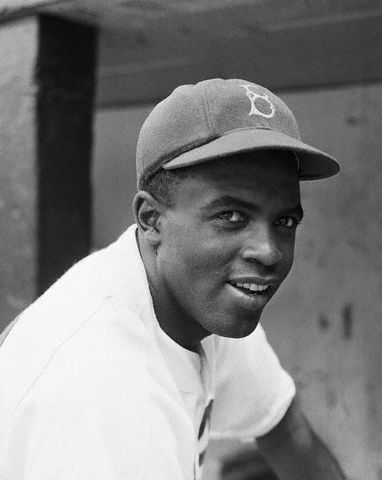
It
is remarkable to see how far baseball has come. Despite its previous racist
tendencies, baseball was the leader and catalyst for the Civil Rights Movement.
Jackie Robinson’s courage and bravery when he took the field in 1947 for the
Brooklyn Dodgers paved the way for not only African American players, but also
players from all over the world to write their pages in the eternal textbook of
baseball.
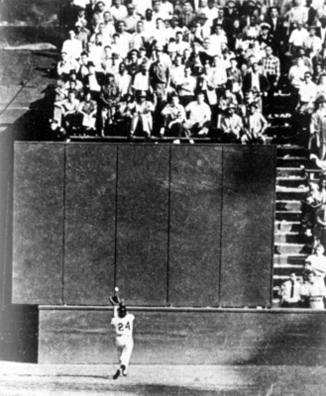
What
would baseball be today without the legacies of Jackie Robinson stealing home
19 times, Willie Mays’ famous catch in the 1954 World Series, Bob Gibson’s 17
strikeouts in Game 1 of the 1968 World Series, the tragic story of Roy
Campanella’s paralysis, or Satchel Paige’s ability to devestate hitters at the
age of 60? Baseball’s history would certainly be less colorful without these
timeless stories.
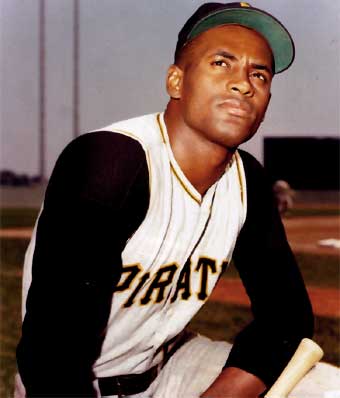
Had
baseball’s color barrier not been broken, we would also lack the spice that
Latin American players have brought upon baseball. No one will forget the
tragic legacy of Roberto Clemente, Pedro Martinez’s record setting 1999
season, or Luis Tiant’s crazy windup. No one will forget watching Mariano
Rivera, the greatest closer of all time, pitch, or “Manny being Manny” or David
Ortiz’s former knack for hitting walk-off home runs.
Despite
this internal cultural diversity, the World Baseball Classic is still more
qualified to be called the World Series than the World Series is! The World
Baseball Classic is what the World Series theoretically should be: a series in
which two different countries play against each other. So why do we insist on
calling this event the World Series? An interesting point to consider is who
makes up a significant portion of the rosters for each country in the World Baseball Classic: Major
League Baseball players. Many MLB players are asked by their home countries to
play in the Classic, which is quite an honor for them. In effect, Major League
Baseball represents many different countries, so perhaps it is justifiable to
call baseball’s most important series the World Series.
Take
the 2009 World Series for example, the Philadelphia Phillies roster included
Jimmy Rollins, Pedro Martinez, Raul Ibañez, Chan Ho Park, and Shane Victorino. The
Yankees World Series roster included Mariano Rivera, Jorge Posada, Robinson
Cano, Hideki Matsui, and Joba Chamberlain. Baseball has truly evolved into a
World Series, but the remarkable thing is that despite their cultural
differences, each team comes together to form one, cohesive team with one,
collective goal: to win the World Series.
Another
point to investigate is that perhaps Mr. Johnson and Mr. Spalding did not
intend the explicit meaning of the word ‘World’. When we think of the World, we
think of the Earth, and all the countries, which is why it may seem that the
World Baseball Classic is more qualified to be called a World Series. However,
as an adjective, ‘world’ can denote the most important or influential thing of
its class, or social interaction. The World Series is the most important series
in baseball, and it certainly promotes social interaction. Every game is sold
out, and everyone in attendance shares a collective love of the game. Perhaps
the most important role that the World Series serves is that it unites.
The
105th World Series was nothing short of these characteristics. The
matchup between Cliff Lee and CC Sabathia was enthralling. The matchup was more
than two aces pitted against each other; it was two former teammates, and two
Cy Young recipients fighting to the finish. Despite the historical stature of
game one, the most captivating moment for me was when Pedro Martinez took the
hill at the new Yankee Stadium. The second game of the series was the first
time he had taken the hill against the Yankees in a postseason game since he
did it in a Red Sox uniform in 2004. Martinez’s history against the Yankees is
one of the most fascinating in baseball’s rich history. Martinez’s 1999 season
is considered by many to be the best of all time, and he won back-to-back Cy
Young awards in 1999 and 2000. His mere presence provokes the Yankees and their
fans alike considering that Martinez has instigated some of the most famous
brawls in Red Sox vs. Yankees history. Yankee fans love to chant “Who’s Your
Daddy” while Martinez is on the mound, and he loves to hear it. Perhaps the
most remarkable matchup was the sixth game and final game when Pedro Martinez
and Andy Petite faced off. It was Martinez’s 40th career start against the
Yankees, and Petite’s 40th postseason start, and perhaps the final
starts of each of their careers. MLB Network did this beautiful montage before Game 6 of all of the famous Pedro moments, and it was so emotional for me. There is something about Pedro’s eloquence during his press conferences, and his smile as he walked off the field that continually give me chills. Watching him pitch is something that I will always cherish in my heart.
Johnson
and Spalding were both visionary men, but it is hard to imagine that they would
have predicted that baseball would become as culturally diverse as it is. So
why did they choose to call it the World Series? Besides the fact that it is
baseball’s most important series, and its constant tendency to promote social
interaction and unite baseball fans everywhere, I think there is one more
thing. Baseball is a world in and of itself: it is survival of the fittest (or
perhaps the richest), the best team wins. There is a central governing body
that makes and maintains the rules, and there are umpires delegated to keep
order in the games. Each game is a battle, which is part of an intricate war to
win the World Series, and during the offseason, the teams are trading their
cultivated players in hopes of becoming stronger for next year’s war. I think
that it is perfectly justifiable to call the most important series in baseball
the World Series. It’s culturally diverse, it promotes social interaction, it
unites, and most importantly? It sure as hell means the world to me.
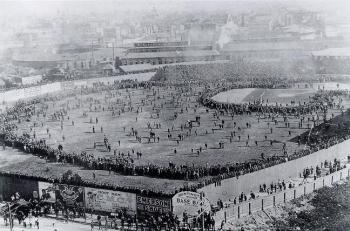
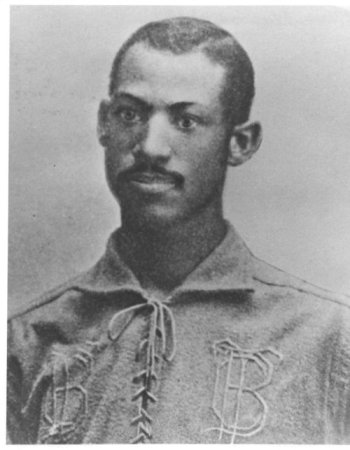
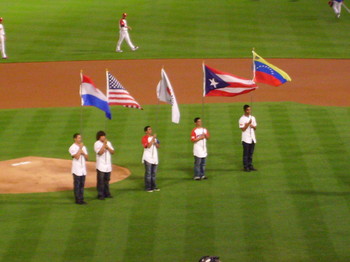
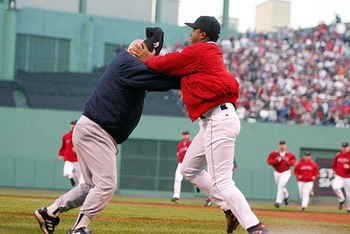
I have to tell you, if you make that a research paper and you do not get an “A”, the teacher is a hockey fan.
Great insight into the origins and the path through the eras. You are well on your way to a career, but be sure to stop and write for your school paper and get some extra laps under your computer.
Seriously, it was the best experience of my life learning the ethics and editing tools along with page layout and foundations of the paper in general.
You have come a long way in a year..be proud of it.
Rays Renegade
http://raysrenegade.mlblogs.com
Elizabeth, what a great entry! I myself have wondered on occasion why it came to be known as the “World” series, but never really gave it a whole lot of thought. Beautifully written. And I love the phrase “write their pages in the eternal textbook of baseball”. I give you an “A”!
Sue
Rants, Raves, and Random Thoughts
All I can say is BRAVO! I loved this post – from your intro asking the question, to your finale resolving why the “World Series” means the world to you. Really good writing. For what it’s worth, I’d give you an A+!
– http://janeheller.mlblogs.com
Awesome article. Great work. Each day brings us a little closer to making the “world” part true. And you worked in a Pedro zimmer pic. You rock, Elizabeth!
http://redstatebluestate.mlblogs.com
http://mtrredstatebluestate.com
Very good post, Elizabeth. Great historical note about there being African-American (and Latin American Black) players in the Major Leagues before Jackie Robinson. It is a little-known fact that most are unaware of. Kudos to you. If anyone is interested in this “hidden history” of African-Americans in the Majors, as well as the Negro Leagues, Robert Peterson’s “Only the Ball Was White” is a very good start!
While you have seen me (I’m sure) on Brownie Points being critical of the WBC, it is certainly true that it is closer to the ideal of a “World Series” than our World Series is, even given the international personalities on our teams nowadays. I am not crazy about the WBC as long as the MLB season is structured as it is, but it certainly is more international than our WS is.
Keep blogging, Elizabeth. You are very good at it, and it would be great if it helps propel you to a pro writing career. (I am still envious of that photo of you with Pesky, by the way!)
Take care, Elizabeth. GO SOX!
Great blog entry. Well thought out and well written. Nice shout out to Fleet Walker of Toledo. I always seem to stump people with that little bit of trivia, too. They make mention of him at the ballpark in Toledo as well.
Take care
Mike
http://burrilltalksbaseball.mlblogs.com
Great piece of work Elizabeth! You made great insights into the cultural and social interactions that have made ‘MLB baseball’ a truly international sport. I agree that they can truly justify the ‘World’ Series even today.
The way I’ve always justified it in my mind, however, is the fact that back in those years, baseball was only played in North America. Therefore, at that time, baseball truly was the ‘greatest professional players in the world’ playing against each other. That historical justification alone satisfies me, even though I know for a fact that many of the ‘greatest players in the world’ today do not play in MLB.
http://homerfoodandhistory.mlblogs.com/
Well, I’m a teacher and I give you an “A”! Excellent article :O)
Jenn
http://philliesphollowers.mlblogs.com/
Great analytical essay here Elizabeth. love the recognition of all the milestones. honestly one of the best articles ive read on the blogs in a while. thanks for the Pirates props! and the clemente pic. but the Pirates did win the worlde series last in 79 not 71. doesnt really even matter-obviously neither of us was alive back then. hopefully we’ll be able to write 2010 for the next bucco world series!
http://pittpeas.mlblogs.com
Maybe one day we will get to see an M.L.B. team face off against a Japanese team!
http://bronx-awesome.mlblogs.com/
Great entry!! Good way to look at the term, World Series as well. Never really thought of it like that, but hey, sounds good to me!! Junior year of high school? Been there, done that, don’t want to go back!! Enjoy it though, ok? High school goes by fast, and soon enough you’re in college. Keep writing and hope you have a great year!!
-Holly
http://irishsoxkid19.mlblogs.com
Eliza beth,
Everytime I heard all of Pedro’s accomplishments, I can’t help but to think of the worst Dodger trade when they sent Pedro Martinez to the Expos for Delino Deshield.” Ugh, sick, sick.
.
Anyway, great entry. Have you ever written to Vin Scully? I hear that he reponds. Next year will probably be his last year. I think you should write to him.
Emma
http://crzblue.mlblogs.com/
Elizabeth, amazing entry and for all it’s worth, I’d give you an A+! I loved reading it and I KNOW that “future” will come off your title in the next few years :] xoxo http://diamondgirl55.mlblogs.com
Great post. One of the best that I have readed in MLBlogs. Kepp doing your great job and thank you for posting and mention the latin people…
Antonio
http://mediasrojas.mlblogs.com
Well done Elizabeth. My guess is the two of them were so into their own “world” they called it the World Series. They did end up being quite prophetic though, didn’t they?
Buz – http://buzblog.mlblogs.com/
Elizabeth! This was, without a doubt, one of the best things I have ever read. The history lesson that you’ve provided us with along with the way it was worded was absolutely brilliant. I know one day that “Future” will be removed; but for right now, it’s well worth it to wait in between entries for writing like this.
Emily
http://deconstructingthoughts.mlblogs.com/
Great job Elizabeth! I think at the time of the first World Series – for right or wrong – I’m sure for those men in charge of baseball saw the United States as “the World” and named their championship after that mentality.
Julia
http://werbiefitz.mlblogs.com/
This entry is certainly on caliber with anything I’ve read in Sports Illustrated, and that’s saying quite a bit considering the superb and consistent quality in that magazine. Your analysis and perspective of “world” is insightful and engaging and your various citations reveal a true depth of knowledge and love for the great game of baseball. Be the great writer, the awesome broadcast journalist, the shrewd general manager…take it all! I was simply enthralled reading this entry and I look forward to many more.